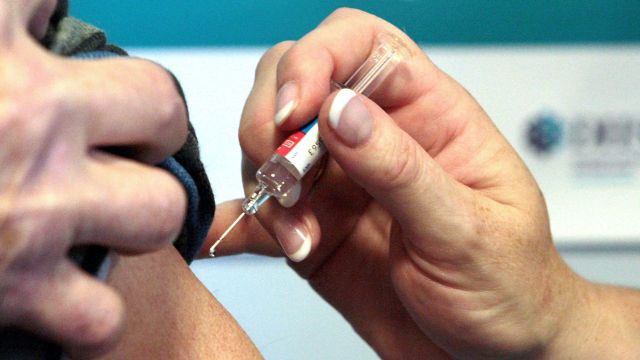The measures will help in the UK-wide deployment of Covid-19 vaccines once they have been approved by the Medicines and Healthcare Products Regulatory Agency (MHRA), the Department of Health and Social Care (DCHC) said.
The changes to the Human Medicines Regulations 2012 came into force on Friday, following a public consultation.
These legal changes will help us in doing everything we can to make sure we are ready to roll out a safe and effective Covid-19 vaccine as soon as it has passed clinical trials and undergone rigorous checks by the regulator
Health Secretary Matt Hancock said: “The NHS has vast experience in vaccinating millions of people against diseases every year.
“These legal changes will help us in doing everything we can to make sure we are ready to roll out a safe and effective Covid-19 vaccine as soon as it has passed clinical trials and undergone rigorous checks by the regulator.”
According to the DCHC, planning will ensure the changes do not affect other services in hospitals and in GP and community services.
Deputy Chief Medical Officer Professor Jonathan Van-Tam said: “Covid-19 vaccines are being developed at speed which, if successful, will save lives.
“All vaccines must undergo three stages of clinical trials and be assessed for safety and effectiveness by the regulator before they are given to patients.
“The measures outlined today aim to improve access and strengthen existing safeguards protecting patients.”
The changes to the Human Medicine Regulations will also allow the MHRA to authorise temporary supply for vaccines, if one becomes available before 2021.
This means that if a vaccine has been found to meet the safety, quality and effectiveness standards by the MHRA then vaccinations can begin without needing to wait for the European Medicines Agency, the DCHC said.
No vaccine will be deployed unless stringent standards have been met through a comprehensive clinical trial programme
Dr Christian Schneider, interim chief scientific officer at the MHRA, said: “Patient safety is our top priority.
“The independent Commission on Human Medicines will advise the UK Government on the safety, quality and effectiveness of any potential vaccine.
“No vaccine will be deployed unless stringent standards have been met through a comprehensive clinical trial programme.
“The preferred route to enable deployment of any new vaccine remains through the usual product licensing processes.
“But reinforced safeguards are now in place to strengthen the regulatory regime and our ability to protect public health, should temporary authorisations be necessary.”







